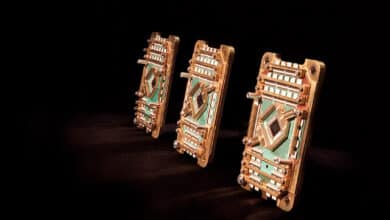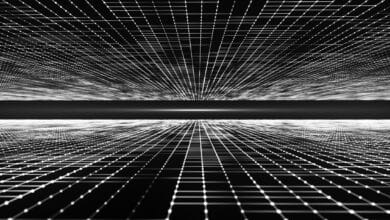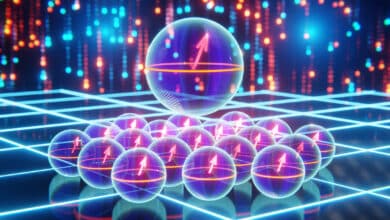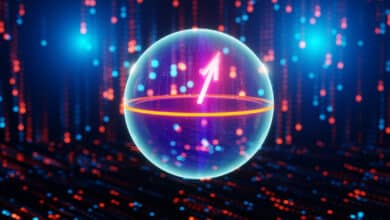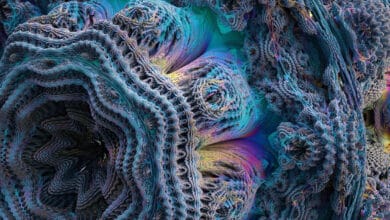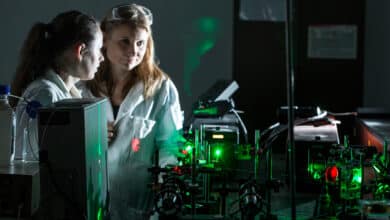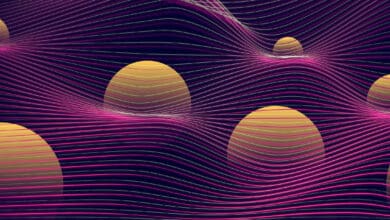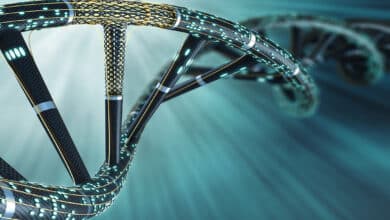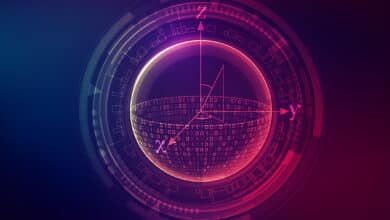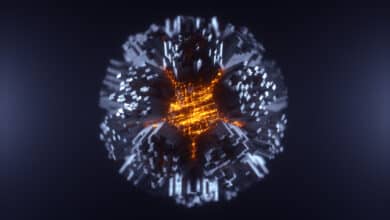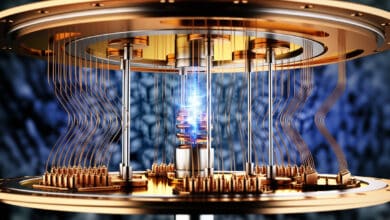Quantum Computing Paradigms
PostQuantum.com by Marin Ivezic – Quantum Computing Paradigms and Architectures
-
Quantum Computing Paradigms: Quantum Annealing (QA)
Quantum annealing (QA) is a special-purpose quantum computing paradigm designed to solve optimization problems by exploiting quantum tunneling and the adiabatic principle. It's a special case of Adiabatic Quantum Computing (AQC). The idea is to encode a problem (typically an NP-hard optimization) into an energy landscape, where the lowest energy…
Read More » -
Quantum Computing Paradigms: Quantum Walk QC
Quantum walks are the quantum-mechanical counterparts of classical random walks. In a classical random walk, a "walker" (such as a particle or an agent) moves step by step in a certain space (like a line or a graph) with some probability distribution. In a quantum walk, the walker instead evolves…
Read More » -
Quantum Computing Paradigms: Fibonacci Anyons
Fibonacci anyons are a type of non-Abelian anyon – exotic quasiparticles that can exist in two-dimensional systems and have exchange statistics beyond bosons or fermions. When two non-Abelian anyons like Fibonacci anyons are exchanged (braided) in space, the quantum state of the system undergoes a unitary transformation (not just a…
Read More » -
Quantum Computing Paradigms: QA With Digital Boost (“Bang-Bang” Annealing)
Digital Boost (“Bang-Bang” Annealing) refers to augmenting or replacing the continuous, gradual annealing schedule with discrete pulses or abrupt changes in the control parameters – essentially applying bang–bang control to quantum annealing. In control theory, a bang–bang controller is one that switches sharply between extreme values (on/off) rather than varying…
Read More » -
Quantum Computing Paradigms: Dissipative QC (DQC)
Dissipative Quantum Computing (DQC) is a model of quantum computation that leverages open quantum system dynamics – in other words, it uses controlled dissipation (interaction with an environment and irreversible processes) as a resource for computing.
Read More » -
Quantum Computing Paradigms: Majorana Qubits
Majorana qubits are quantum bits encoded using Majorana zero modes, exotic quasiparticles that are their own antiparticles. These modes emerge in certain superconducting systems as zero-energy states bound to defects or boundaries. Uniquely, information stored in a pair of Majorana modes is nonlocally encoded – effectively an electron's quantum state…
Read More » -
Quantum Computing Paradigms: Biological QC
Biological Quantum Computing refers to speculative ideas that biological systems might perform quantum computations or that we could harness biological processes to implement quantum computing. This paradigm is highly exploratory and not yet realized in any form, lying at the intersection of quantum physics, biology, and computer science.
Read More » -
Quantum Computing Paradigms: Boson Sampling QC (Gaussian & Non-Gaussian)
Boson Sampling is a specialized, non-universal model of quantum computation where the goal is to sample from the output distribution of indistinguishable bosons (typically photons) that have passed through a passive linear interferometer. In simpler terms, one prepares multiple photons, sends them through a network of beam splitters and phase…
Read More » -
Quantum Computing Paradigms: Quantum Cellular Automata (QCA)
Quantum Cellular Automata are an abstract paradigm of quantum computing where space and time are discrete and quantum information processing happens in many parallel identical cells interacting with neighbors under a uniform rule. It’s a quantum counterpart to classical cellular automata (like Conway’s Game of Life, but quantum).
Read More » -
Quantum Computing Paradigms: Time Crystals’ Potential QC Use
Time crystals are an exotic state of matter that spontaneously breaks time-translation symmetry, meaning the system’s lowest-energy state exhibits periodic motion in time. This is analogous to how ordinary crystals break spatial translation symmetry by arranging atoms in a repeating lattice pattern in space. In a time crystal, the system’s…
Read More » -
Quantum Computing Paradigms: DNA-Based QIP
DNA-based quantum information processing envisions using DNA – the molecule of life – in roles within a quantum computer. This could mean DNA acting as qubits, facilitating quantum interactions, or serving as a structural scaffold for other qubits. It's an intersection of quantum technology with biotechnology and nanotechnology.
Read More » -
Quantum Computing Paradigms: One-Clean-Qubit Model (DQC1)
The One-Clean-Qubit model, also known as Deterministic Quantum Computation with One Qubit (DQC1), is a restricted quantum computing paradigm where only a single qubit starts in a pure (or “clean”) state while all other qubits are in a completely mixed state.
Read More » -
Quantum Computing Paradigms: Exotic and Emerging QC
Overview of “exotic and emerging” quantum computing paradigms and discuss why they exist, what common themes link them, how they compare to mainstream quantum computers, and what implications they might hold for the future. We also introduce each paradigm in turn – from quantum cellular automata and biological quantum computing…
Read More » -
Quantum Computing Paradigms: Photonic Continuous-Variable QC (CVQC)
Photonic continuous-variable quantum computing (CVQC) is an approach to quantum computation that uses quantum states with continuously varying quantities (like the amplitude or phase of an electromagnetic field) instead of discrete two-level systems (qubits).
Read More » -
Quantum Computing Paradigms: Hybrid QC Architectures
Hybrid quantum computing architectures refer to combining different types of quantum systems or integrating quantum subsystems with one another (and often with classical systems) to create a more powerful or versatile computer. This can mean hybridizing physical qubit modalities (e.g., using both superconducting qubits and photonic qubits together), or mixing…
Read More »
